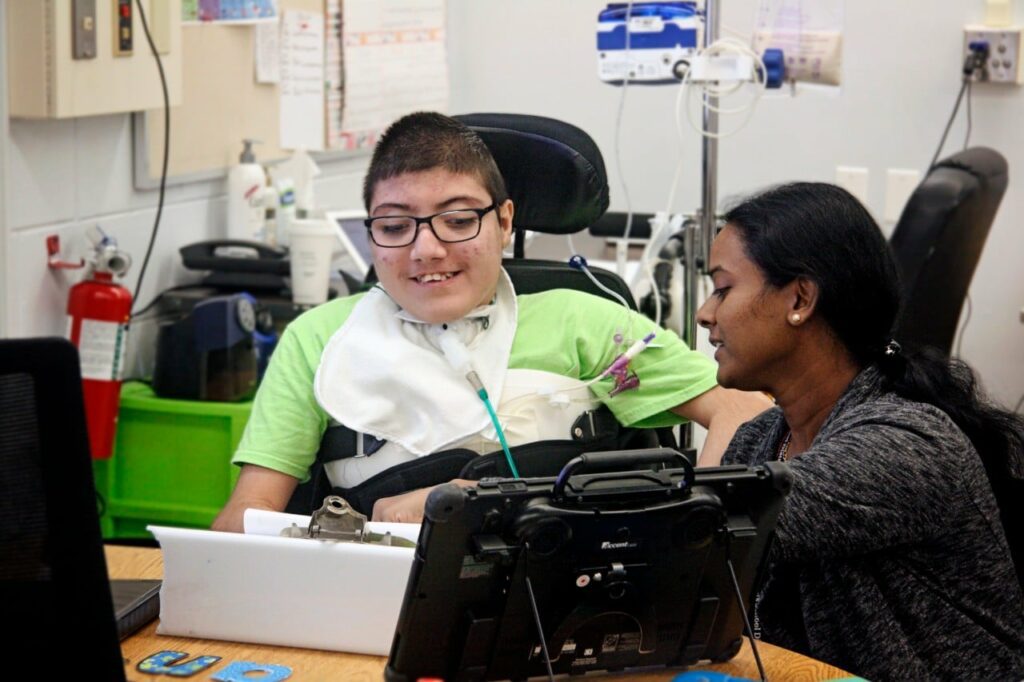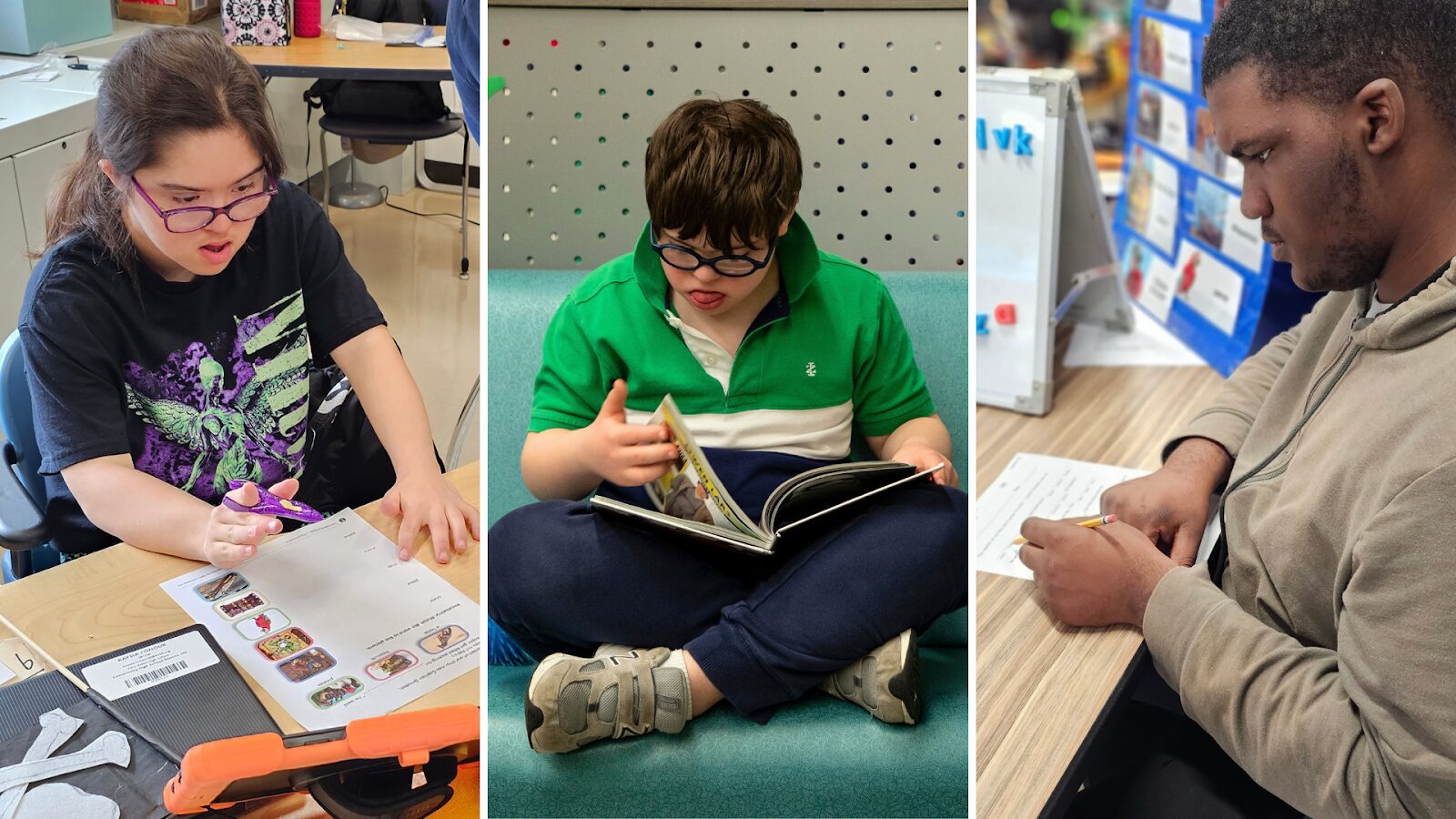Re-Defining the Special Education Classroom at MacArthur Middle School
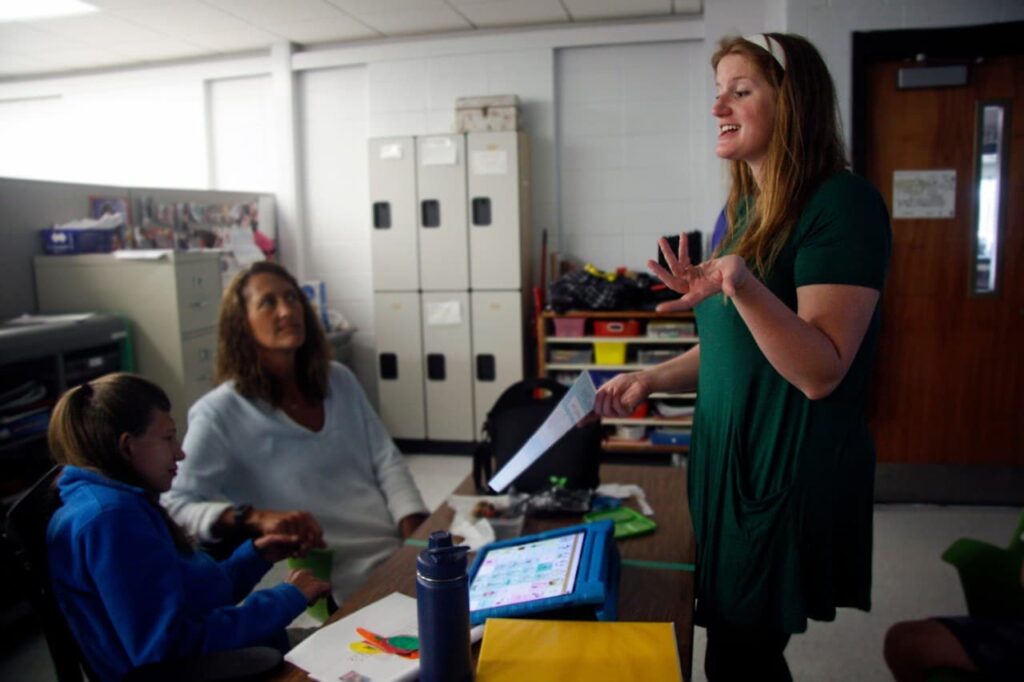
Abbey Lynch walks over to a table and offers her hand to a smiling, eager student who takes it to point at her AAC device indicating the answer to a particular question. Lynch, a special education teacher at MacArthur Middle School in Prospect Heights, IL, just finished a lesson around the novel Frankenstein with her students. She teaches students who have a range of complex needs in the areas of communication, academic, motor, sensory, physical and social-emotional learning.
The students are excited to be continuing their discussion about Frankenstein. Another student has her writing (yes, HER writing) read aloud and says, “I don’t know how I feel about [Mary Shelley] not putting her name on the book originally.” They discuss how the story makes them feel and how they think the characters in the book are feeling. Everyone is engaged and participates. It is a magical thing to witness.
Presuming Competence in a Self-Contained Classroom
Just 10 years ago, it would be unlikely to see a self-contained or autism classroom participating in reading and discussing Frankenstein. But, a shift in standards, new alternate assessments, and a philosophy of presumed competence are giving all students opportunities to access the general education curriculum. It’s also giving Abbey Lynch an opportunity to do more of what she loves—helping her students grow both individually and through a classroom community.
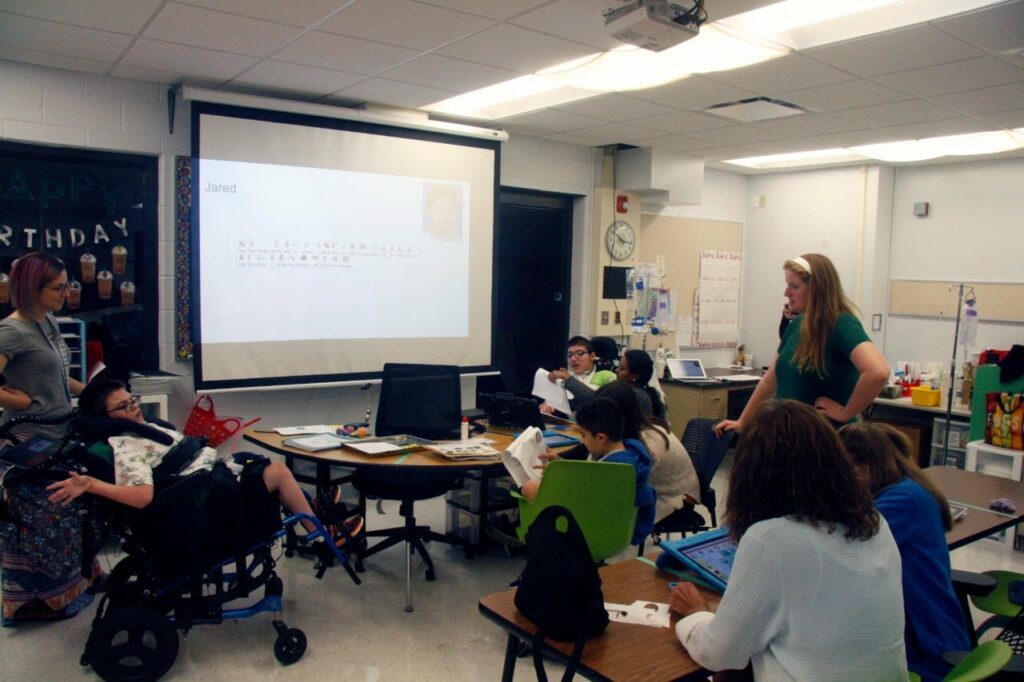
After bringing Readtopia into her classroom, it didn’t take long for her to see the transformation. As anyone who works with children with complex needs (especially around communication) knows it’s often difficult to see engagement and learning. And yet, as Abbey’s classroom delved into the Marine Life unit and 20,000 Leagues Under the Sea graphic novels, she noticed that things were changing, meaningfully changing. She shares, “one student who uses a communication device was never motivated by academic work. He just wasn’t interested. But, as we were reading in whole group, he started to repeatedly hit the button on his device for “submarine” because the story has a submarine in it. It was truly one of those tear-filled moments.”
Being able to solely focus on the success of her students is, by her own admission, a major reason why Abbey steps into her classroom every day. This refrain is heard from special educators everywhere, “I could never do anything else,” or, “I got into this work because I love to help people.
New Levels of Engagement and Learning
Adapting the general education curriculum to work for students with complex needs was key to helping Abbey shape her classroom. The wide range of student needs showed her that differentiation was key. Given the mountains special education teachers face each day, a rigorous instructional program and resources can go a long way in providing them with the guidance and support they need to do their personal best work in the classroom. Abbey Lynch saw these qualities in Readtopia and First Author, which came already adapted and differentiated. They gave her the resources she needed to bring the general education curriculum to her class and guide her instruction.
Readtopia builds reading skills through thematic units covering a range of topic areas (science, social studies, ELA, and Math). They also came with enough levels to span the range of abilities in her class. “What I love most about Readtopia is the levels! It really changed my teaching. My students have multiple disabilities and cognitive impairments. I always want to presume competence, but other materials I’ve tried don’t have that age appropriateness—they aren’t written for older students like mine.”
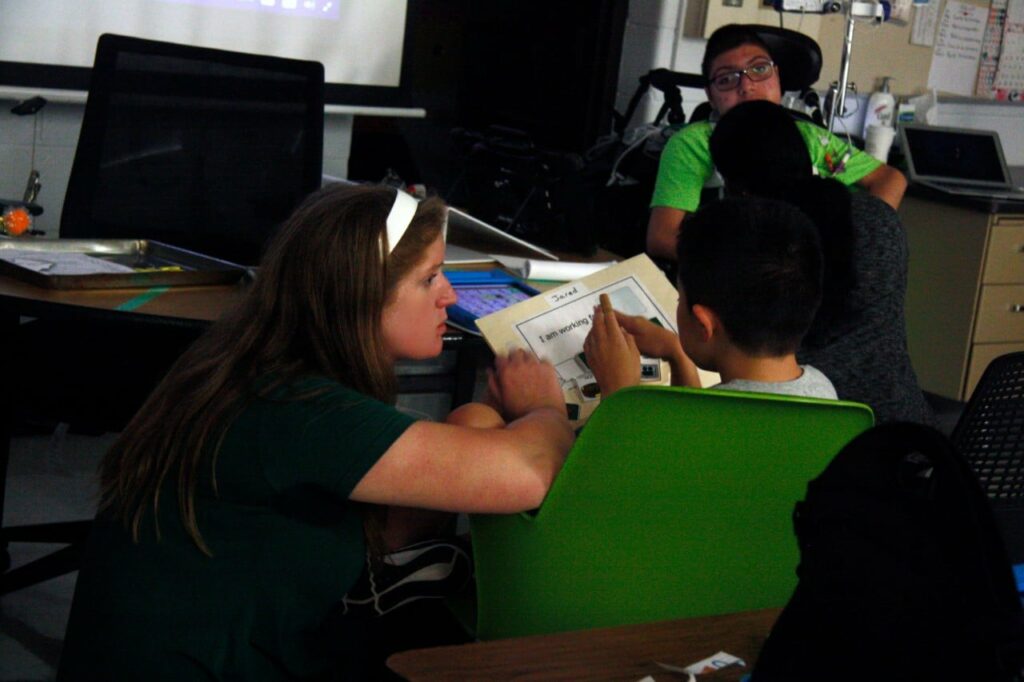
Rekindling a Passion for Teaching
